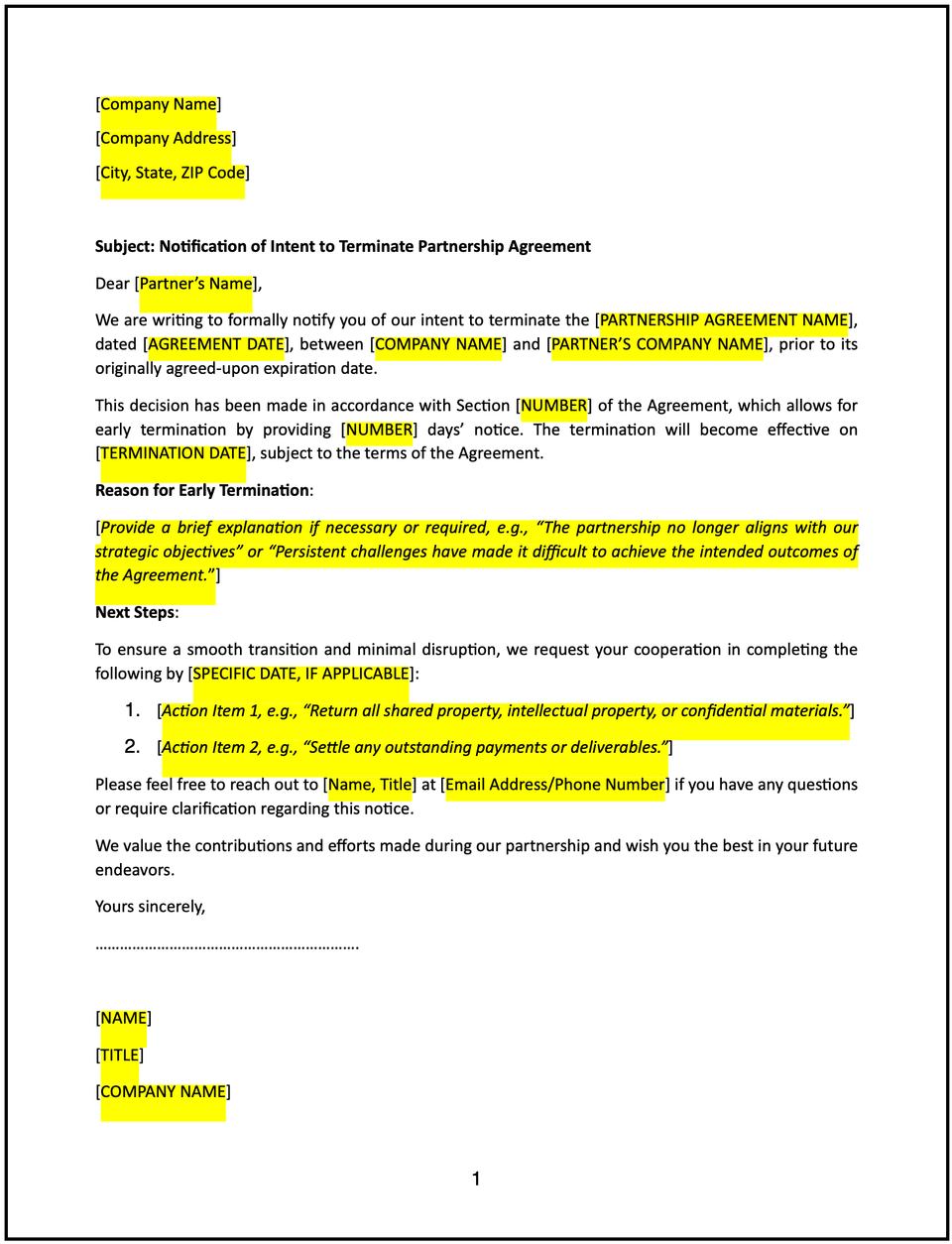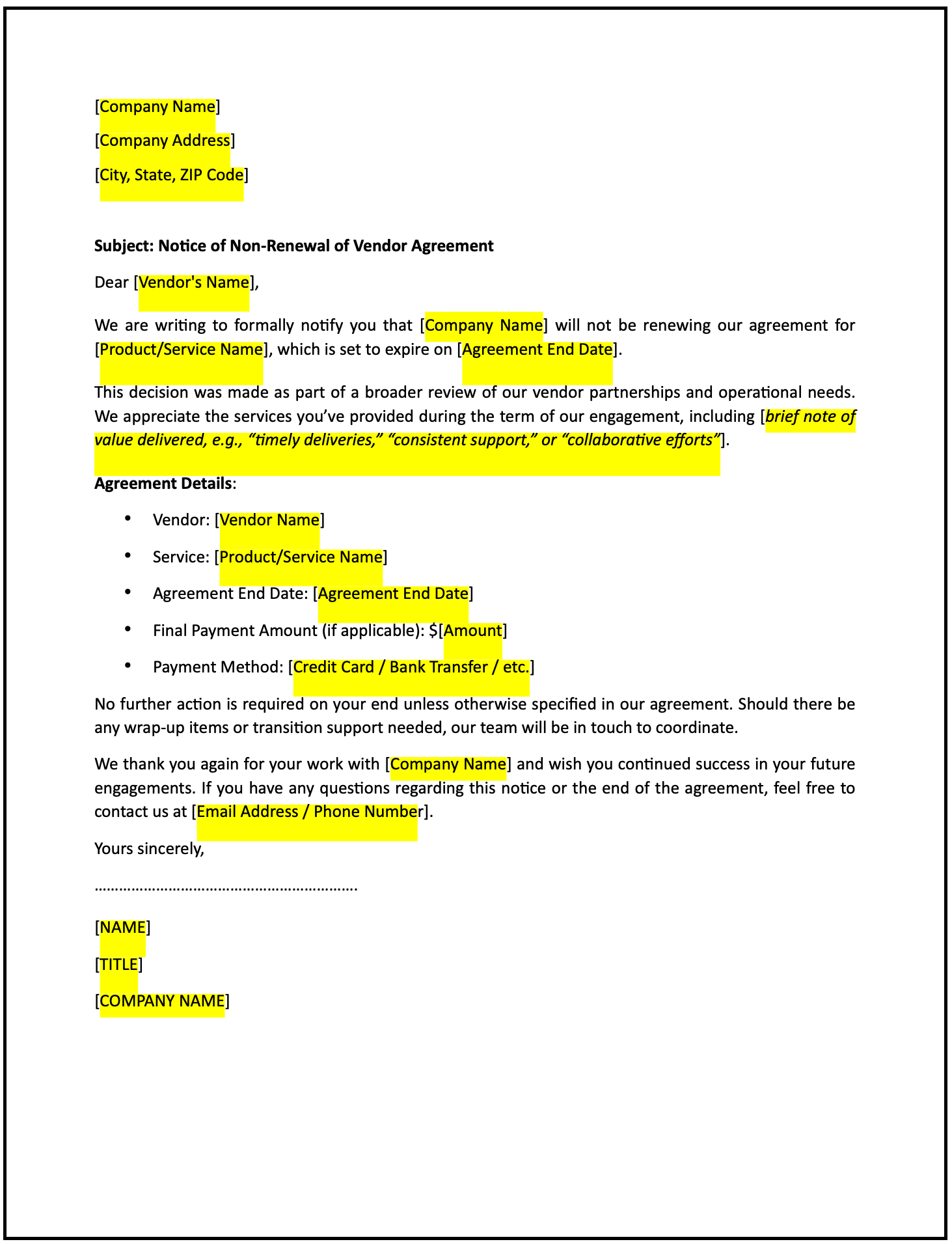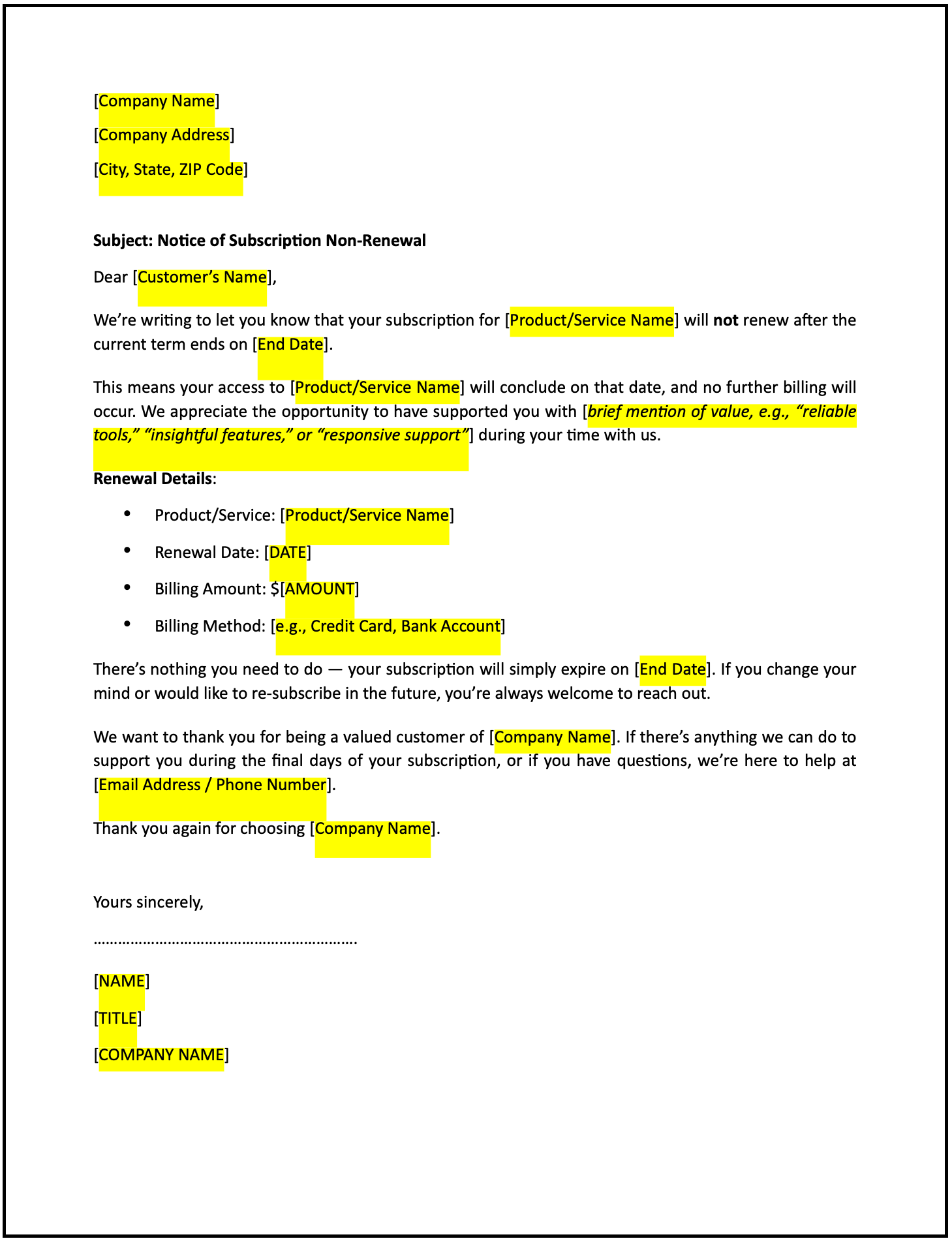Letter of intent to terminate partnership early: Free template

Letter of intent to terminate partnership early
A notification letter of intent to terminate a partnership early is a formal communication used to inform a partner of your decision to end a partnership agreement before its original term. This letter outlines the reasons, confirms adherence to contract terms, and provides next steps to ensure a smooth transition.
How to use this letter of intent to terminate partnership early
- Open with an introduction: Address the recipient respectfully and reference the partnership agreement, including the date it began and relevant terms.
- State the intent: Clearly communicate your intention to terminate the partnership agreement early.
- Provide a reason: Briefly explain the reason for the early termination, ensuring the tone remains professional and constructive.
- Reference contract terms: Mention the specific clause or provisions in the agreement that allow for early termination, demonstrating compliance.
- Confirm key dates: Specify the effective date of termination and any notice period being observed.
- Outline next steps: Provide details on transitioning responsibilities, final settlements, or ongoing obligations to ensure a smooth conclusion.
- Maintain a professional tone: Ensure the letter is clear, respectful, and focused on fostering a cooperative resolution.
- Provide contact information: Include details for the recipient to reach out with questions or discuss the termination further.
Benefits of using a letter of intent to terminate partnership early
This letter ensures a structured and professional way to communicate the decision while preserving goodwill and ensuring compliance. Here’s how it helps:
- Promotes clarity: Clearly outlining the decision and next steps avoids confusion or misunderstandings.
- Reflects professionalism: A well-crafted letter demonstrates respect for the partnership and its terms.
- Ensures compliance: Referencing the agreement’s terms demonstrates adherence to legal and contractual obligations.
- Preserves relationships: Maintaining a respectful tone fosters goodwill for potential future collaborations.
- Supports a smooth transition: Clearly defining next steps ensures all parties are aligned during the conclusion of the partnership.
Tips for writing an effective letter of intent to terminate partnership early
- Be specific: Clearly state the intention, the reason, and the effective date of termination.
- Use professional language: Maintain a respectful and constructive tone to preserve the relationship.
- Provide context: Reference the relevant contractual terms that support the early termination.
- Highlight next steps: Share actionable details about the transition process or any remaining obligations.
- Avoid negativity: Focus on a cooperative resolution rather than assigning blame.
- Keep it concise: Focus on the key points while ensuring the tone is professional and clear.
Frequently asked questions (FAQs)
Q: What details should I include in this letter?
A: Include the partnership agreement reference, the intent to terminate, reasons, relevant dates, and next steps.
Q: Should I personalize the letter?
A: Yes, addressing the recipient by name and referencing specific aspects of the partnership demonstrates respect.
Q: Who typically sends this letter?
A: Organizational leaders, legal representatives, or decision-makers typically send this letter.
Q: How formal should this letter be?
A: The tone should be professional and respectful, focusing on compliance and fostering cooperation.
Q: When should this letter be sent?
A: Send the letter within the notice period specified in the agreement to ensure compliance.
Q: Can this letter include a proposal for ongoing collaboration in a different capacity?
A: Yes, if appropriate, suggesting alternative opportunities can help preserve goodwill.
Q: Is acknowledgment from the recipient required?
A: While not mandatory, requesting acknowledgment ensures the recipient is aware of and aligned with the decision.
This article contains general legal information and does not contain legal advice. Cobrief is not a law firm or a substitute for an attorney or law firm. The law is complex and changes often. For legal advice, please ask a lawyer.


